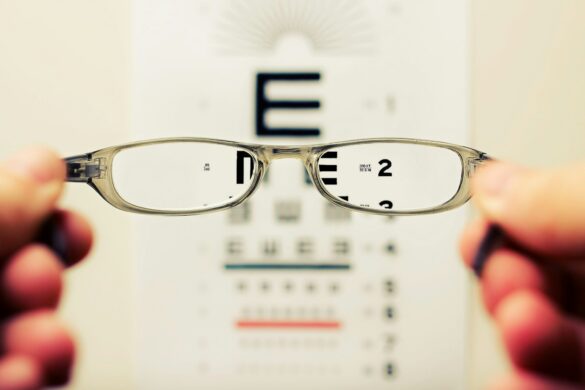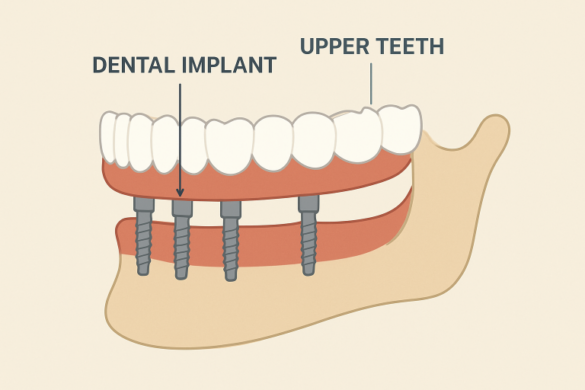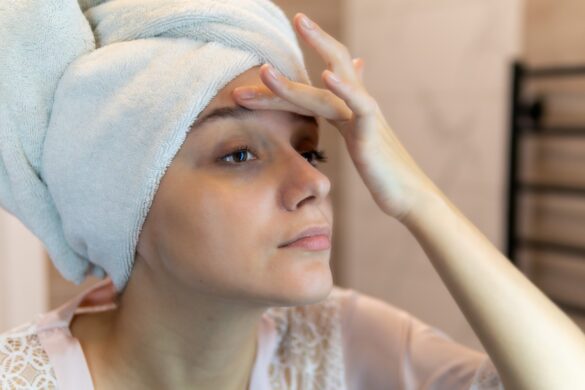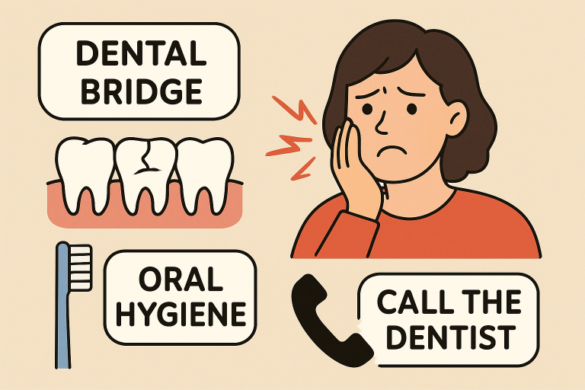For those searching for local expertise, finding a migraine treatment Jacksonville, FL, provider can offer both resources and relief to help you reclaim your daily routine from migraines. Understanding migraine triggers, such as diet, environment, hormones, and stress, is crucial for effective management and improved quality of life. By identifying personal patterns related to headaches, individuals can better prevent attacks. Each person’s triggers vary, highlighting the importance of monitoring headaches and consulting with healthcare providers to create a personalized management plan.
Common Migraine Triggers
An array of triggers influences migraines, and recognizing yours can make a significant difference in how you manage your condition. While not everyone responds to the same factors, the following are the most commonly reported causes identified in clinical studies and patient experiences. Understanding that your migraines may be triggered by a combination of factors—not just one—can light the path to better proactive care.
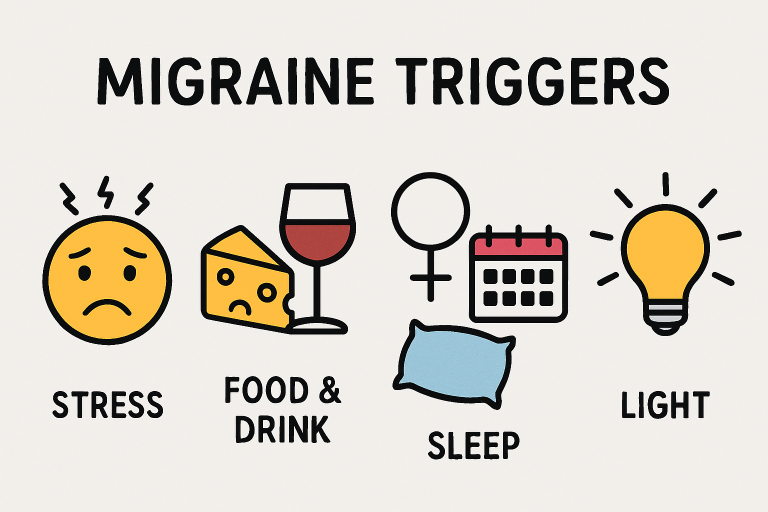
Stress
Emotional and physical stress stands as one of the most potent migraine triggers. When you are under stress, whether from work, family, or ongoing challenges, your body releases chemicals such as cortisol and adrenaline that can spark changes in brain chemistry and blood vessels, increasing the likelihood of an attack. For many individuals, stress is the most cited trigger, and managing it effectively is central to migraine control. Daily stress management—whether through deep breathing, meditation, practicing yoga, taking frequent breaks during the day, or consistent physical activity—has been shown to lessen migraine frequency and severity for many individuals. Many also find value in counseling or therapy, which can teach relaxation techniques and help shift thought patterns that contribute to stress and tension headaches.
Dietary Factors
Food and drink can have a significant effect on migraine patterns. Certain items are reported more often by sufferers as triggers, such as:
- Aged cheeses (Parmesan, blue cheese) contain tyramine, a substance linked to migraines.
- Processed meats contain nitrates, which can affect blood vessels and provoke migraines in susceptible people.
- Alcoholic beverages, particularly red wine, are common triggers, possibly due to histamines and tyramine present in alcohol or the way alcohol affects dehydration.
- Caffeinated drinks and sudden caffeine withdrawal—some people are triggered by too much caffeine, while others are triggered by too little, making moderation and consistency important.
- Monosodium glutamate (MSG) found in some packaged foods and takeout meals, known to contribute to headaches in sensitive individuals.
Additionally, irregular eating habits, such as skipping meals, fasting, or allowing your blood sugar to drop too low, can provoke a migraine. Maintaining a consistent eating schedule, prioritizing balanced meals, and staying properly hydrated can also help prevent blood sugar fluctuations that may lead to migraine onset. Many people also benefit from keeping a food diary, tracking what they eat and noting symptoms to spot personal food sensitivities.
Hormonal Changes
Fluctuations in hormones, especially estrogen, have a distinct link to migraines. Women may notice a pattern of increased migraine activity around their menstrual cycle, during pregnancy, or as they approach menopause. These changes can intensify vulnerability to triggers that might otherwise not be a problem. For some, birth control pills or hormone replacement therapy can also alter migraine frequency. Hormone-related migraines may require you to track your cycles and speak with a healthcare professional for preventive strategies, such as adjusting medications or timing preventive measures around hormonally active phases.
Sleep Disturbances
The relationship between sleep and migraines is well documented by both scientific studies and patient testimony. Both lack of sleep and oversleeping can disrupt brain chemistry and trigger an episode. At the same time, an irregular or unpredictable sleep schedule can also wreak havoc and lower your brain’s threshold for an attack. Prioritizing a consistent sleep schedule—waking and going to bed at the same time each day—helps your body relax before bedtime, and creating a dark, quiet environment can help regulate your sleeping habits and reduce the likelihood of future attacks. Avoiding electronics and stimulants before bed can also improve sleep quality.
Environmental Stimuli
Many people report that their attacks are triggered by changes in their surroundings, particularly those involving their senses. Common offenders include bright or flickering lights (such as camera flashes, fluorescent bulbs, or sunlight reflecting off water), loud or repetitive sounds, and potent smells (like strong perfume, smoke, or cleaning products). For some, even minor changes in weather—such as sudden shifts in barometric pressure or humidity—can be problematic. Minimizing exposure by wearing sunglasses to reduce glare, using noise-cancelling headphones or earplugs, and avoiding known irritants can help reduce the risk and give you more control over your environment.
Preventive Strategies
Prevention is all about proactivity and building habits that support overall neurological health. While not all migraines are avoidable, these techniques and adjustments have proven helpful for many:
- Follow a regular sleep and wake schedule—even on weekends—to keep your body’s circadian rhythm stable.
- Practice daily relaxation methods, such as mindfulness, guided imagery, or gentle exercise, to lower your stress levels.
- Identify and avoid personal dietary triggers by keeping a food and symptom journal and gradually eliminating suspected foods to notice improvements.
- Stay well-hydrated and avoid lengthy gaps between meals to maintain steady blood sugar levels.
- Reduce exposure to known visual, auditory, or olfactory triggers in your environment to make your workspace and living space migraine-friendly.
For additional dietary considerations, the Drugs.com guide to migraine-triggering foods provides an in-depth look at ingredients that may be contributing to your attacks and offers guidance on substitution or moderation.
When to Seek Medical Advice
If you experience migraines more than a few times a month, find they worsen in intensity, or notice new or changing symptoms such as auras, confusion, or weakness, it’s wise to consult a healthcare provider. Sometimes migraines can mimic symptoms of more serious health conditions, so timely professional evaluation is vital for safety and peace of mind. Medical professionals can recommend lifestyle interventions, prescribe preventive or abortive medications, or refer you to a pain specialist for more advanced or multidisciplinary treatment plans. Early and proactive intervention can also prevent migraines from becoming chronic and further impacting your daily life and emotional well-being.
For more extensive information about migraine causes and medical management, see the NHS’s migraine resource page, which delves into symptoms, available treatments, and practical self-help tips for people experiencing migraines of all types.
Recognizing and actively managing migraine triggers can restore your sense of control and contribute to fewer attacks, improved productivity, and a better quality of life. Stay attuned to your body, partner with your care team, and continue learning about what works best for your well-being. Keeping informed and being proactive are vital steps for reclaiming your life from the limitations that migraines may impose.

